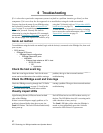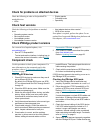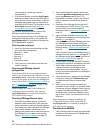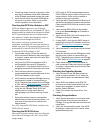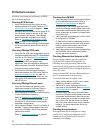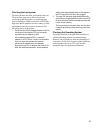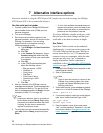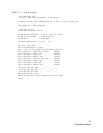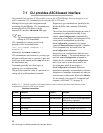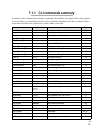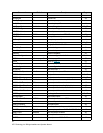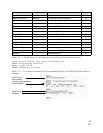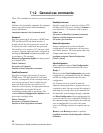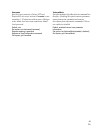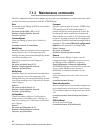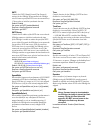
35
ATTO Technology Inc. iPBridge Installation and Operation Manual
7.1 CLI provides ASCII-based interface
The command line interface (CLI) provides access to the ATTO iPBridge
Services through a set of
ASCII commands. CLI commands may be entered while in CLI mode.
iPBridge Services provide configuration and
monitoring for the iPBridge. CLI commands may
be entered while in CLI mode or on the
ExpressNAV interface
Advanced CLI
page.
Note
The recommended management tool for the
iPBridge is ATTO ExpressNAV.
CLI commands are context sensitive and
generally follow a standard format
[Get | Set] Command [Parameter 1 |
Parameter 2]
followed by the
return
or
enter
key
CLI commands are case insensitive: you may type
all upper or all lower case or a mixture. Upper and
lower case in this manual and the
help
screen are
for clarification only.
Commands generally have three types of
operation: get, set and immediate.
The get form returns the value of a parameter or
setting and is an informational command.
Responses to get commands are specified in the
Results field for each command, followed by
Ready.
The set form is an action that changes the value of
a parameter or configuration setting. It may
require a
SaveConfiguration
command and a
restart of the system before it is implemented. The
restart can be accomplished as part of the
SaveConfiguration
command or by using a
separate
FirmwareRestart
command. A number
of set commands may be issued before the
SaveConfiguration
command.
Responses to set commands are either an error
message or
Ready. *
. The asterisk indicates you
must use a
SaveConfiguration
command to
finalize the set command.
SaveConfiguration
asks if you want to restart the system or not.
Set commands which do not require a
SaveConfiguration
command, defined as
immediate commands, are immediately executed.
Responses to Immediate commands are either an
error message or data results followed by
Ready.
For an example of a typical CLI command and
response, see Exhibit 7.1-3 on page 38.
Exhibit 7.1-1 Symbols, typefaces and abbreviations used to indicate functions and elements of the
command line interface used in this manual.
Command conventions
Symbol Indicates Symbol Indicates
[ ]
Required entry Boldface words must be typed as they appear
< >
Optional entry Italicized words Arguments which must be replaced by
whatever they represent
|
pick one of mp0 Management port
…
Ellipses, repetition of preceding item Dp Data port (0<= Dp <= 1)
\n
end of line sb SCSI bus number (0<= sb <= 1)
-
a range (6 – 9 = 6, 7, 8, 9) sl SCSI LUN ID (0 <= sl <= 7)
st SCSI target ID (0 <= st <= 15)



